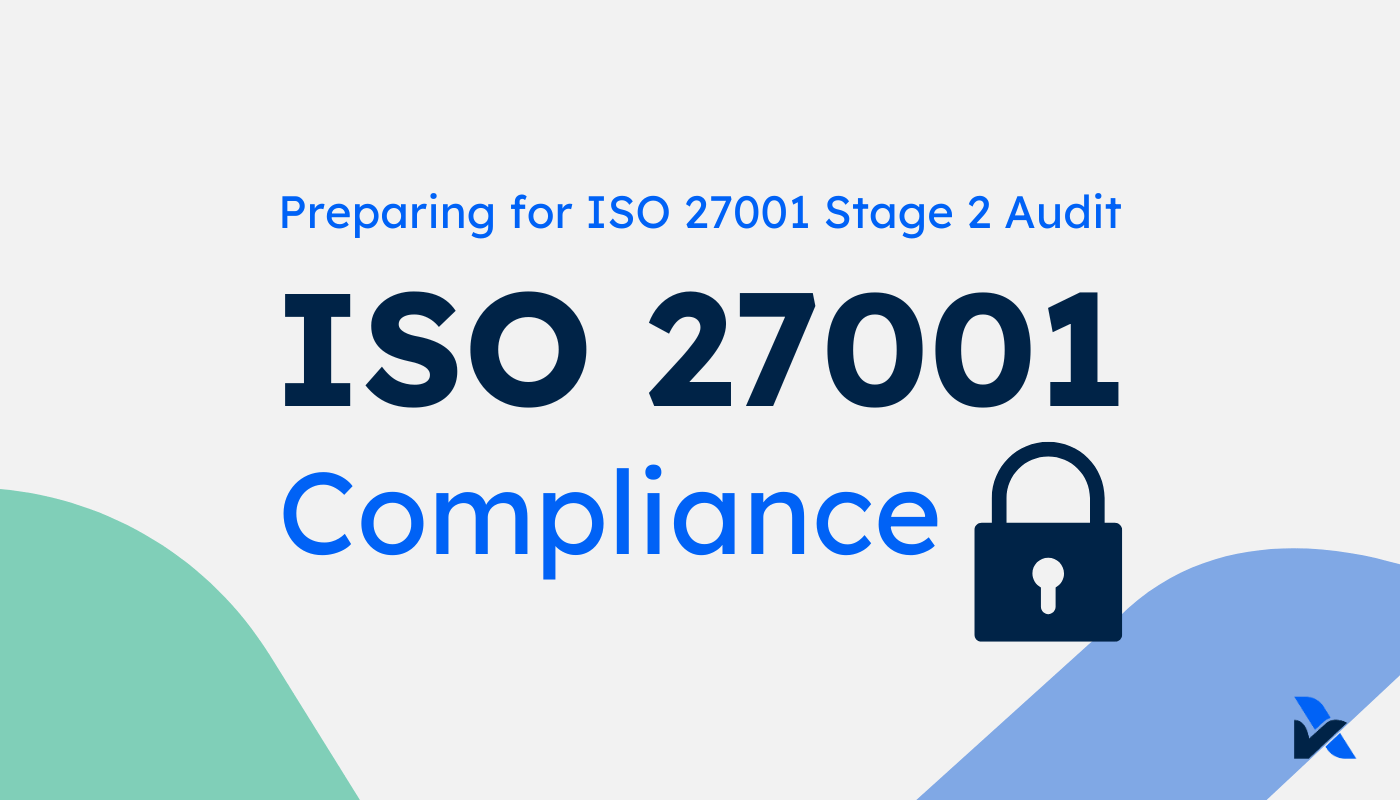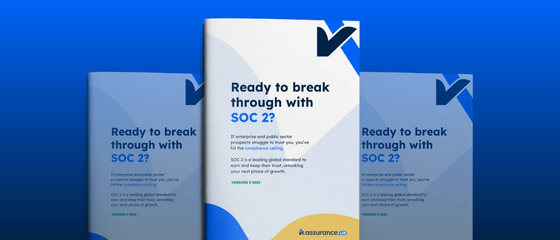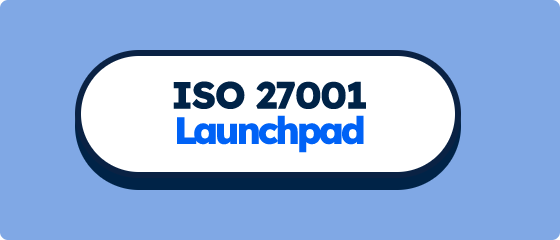
How to prepare for ISO 27001 Stage 2 audit after completing Stage 1
After ISO 27001 Stage 1 Audit, how do you know you're ready for Stage 2? In this guide we cover the steps and indicators of ISO 27001 Stage 2 Audit readiness
The ISO 27001 certification process is divided into two stages: Stage 1 audit and Stage 2 audit. Following the completion of the Stage 1 audit, the organisation prepares for the more extensive Stage 2 audit.
The biggest question we get after the Stage 1 audit? What do I do now, and how do I know when we’re ready to start Stage 2?
In this blog post, we'll look at how to effectively prepare for the ISO 27001 Stage 2 audit after completing the Stage 1 audit, and how you know when to get the auditors involved!
ISO 27001 Stage 1 Audit: Communication with Auditors
Before getting into Stage 2 preparation, reviewing the Stage 1 audit findings is critical. This preliminary evaluation focuses on an organisation’s Information Security Management System (ISMS) preparation for the full certification audit. At this level, auditors assess the ISMS documentation, including policies, procedures, and controls. It also helps the organisation understand the criteria of the standard and that the appropriate foundation has been prepared for the Stage 2 audit.
Understanding the ISO 27001 Stage 2 Audit
The primary objectives of the Stage 2 audit are to validate the organisation's compliance with ISO 27001 criteria, evaluate the effectiveness of controls, and recommend potential areas of improvement.
Unlike the Stage 1 audit, which focuses on documentation, the Stage 2 audit focuses on the implementation and effectiveness of the ISMS. The auditors determine if the organisation's practices are consistent with its policies and procedures.
To determine this, the audit includes management interviews with key stakeholders in the organisation’s ISMS, testing of the ISMS against the ISO 27001 requirements, and testing of all applicable Annex A controls.
Gap Analysis and Corrective Actions
To strengthen your ISMS, your organisation needs to address the gaps identified in Stage 1. You might proceed to:
- Conduct a thorough gap analysis to discover areas that require improvements
- Determine the importance of these gaps and develop corrective action plans
- Assign tasks to individuals or teams and establish realistic timeframes for completing essential modifications to the controls
- Ensure that your corrective actions are designed for the risks and issues identified
Risk Management and Assessment
ISO 27001 depends on effective risk management and assessment. Stage 2 auditors will assess the thoroughness of your risk assessment approach. To assist with this, you would:
- Review and update your risk assessment process as appropriate
- Evaluate new risks and change your risk management strategies in accordance with the identified risks
Taking a proactive approach to risk management demonstrates your dedication to protecting information assets.
Implementation of Controls
Within the Stage 1 audit, you would have demonstrated your Statement of Applicability to the auditors, defining the controls that are, and are not, applicable to mitigate your organisations information security risks.
Now, with Stage 2 in mind, it’s time to go through and ensure that each of these controls have been implemented, with adequate evidence maintained for the audit.
Training and Awareness
Stage 2 of the audit determines how well your employees acknowledge and follow your information security policies and procedures. Since well-informed employees are critical to the success and compliance of your ISMS, it is important to:
- Provide extensive information security training to your employees to demonstrate your commitment to information security
- Develop awareness campaigns highlighting the significance of following security measures and reporting any incidents that occur
Internal Audit
Internal audits and assessments on a regular basis provide insight for continuous improvement of your ISMS. Internal audits act as entry points to discover possible gaps and non-compliance issues prior to the external audit.
Stage 2 auditors will review the internal audit programme's effectiveness. You should:
- Ensure your internal audits are rigorous, objective, performed regularly and clearly documented
- Address any nonconformities found during these internal audits as soon as possible, and implement any lessons learnt into your ISMS through your defined corrective actions process
So, am I ready for Stage 2?
The key thing to note is that no two organisations have the same timeline between Stage 1 and Stage 2 audits. The standard itself does not prescribe a specific timeframe either. The only requirement is that you have gone through one “cycle” of your ISMS, and you have implemented the applicable Annex A controls.
In Summary…
You are ready for ISO 27001 Stage 2 if you have evidence of implementation of each function in the ISMS processes detailed above, and each of the Annex A controls you have deemed applicable.
Preparing for the audit requires thorough planning, careful attention to detail, and a proactive commitment to information security. Organisations must refine their ISMS, correct any identified gaps, and constantly improve their security practices based on the foundation set during the Stage 1 assessment.
The ISO 27001 Stage 2 audit provides a chance to demonstrate your organisation's commitment to information security as well as the ability to build and maintain effective controls. Organisations that adopt ISO 27001 standards and thrive in the Stage 2 audit not only earn certification but also build a security culture that protects their assets and deepens trust with customers.
Let us know if you have any questions on the above, and learn more about our ISO 27001 audits.







